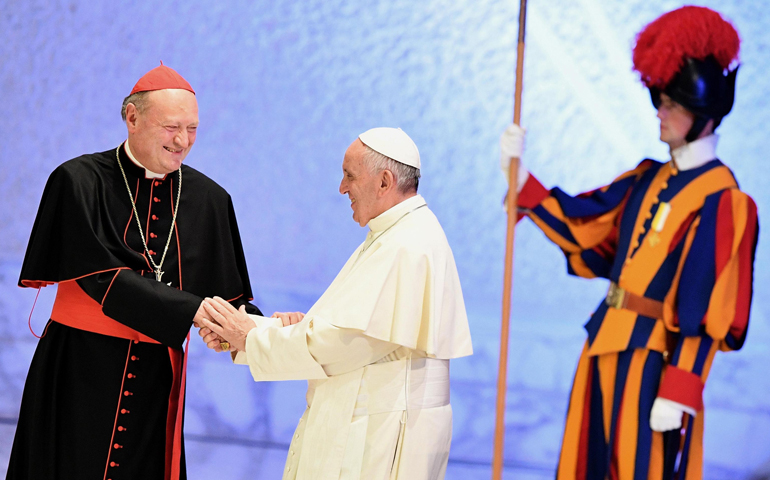
Cardinal Gianfranco Ravasi, president of the Pontifical Council for Culture, said that the opening of the diaconate for women is a possibility in a long Feb. 24 interview with the German Catholic site katholisch.de.
"Women deacons would be a possibility in my eyes, but it would naturally have to be discussed first as the historic tradition is very complex," he said. The present continuous fixation on women's ordination was "clerical," he added.
"Why don't we start talking about other important church functions that women could take on like the structural administration of parishes, church finances or architectural planning?"
According to Ravasi, it would be good for other Vatican dicasteries to set up groups of women consultants as the Council for Culture did in 2015. There are now 35 women from diverse educational backgrounds in his permanent women's consultation group, he said, including the rector of a pontifical university, prison directors, surgeons, business managers, women from different faiths, including a nonbeliever, women who work in the fashion world and several journalists.
Besides advising the council, it is also their job to read and critically assess what the council is doing from their point of view, Ravasi said. "Women see many things differently from men," he said. "Our women advisors help prepare our general assembly and take part in it."
The cardinal said he is aware of the risk of allowing women consultors to play the above roles. If one of them were to state publicly that she thought the priesthood should be open to women, for instance, "and to my mind it would be perfectly legitimate for her to express such an opinion publicly," the following headline would "no doubt" immediately become breaking news: "Cardinal Ravasi suggests women's ordination." The ambiguity in communication and the media is a very big problem, he said.
There is also the risk that many in the church see the appointment of women consultors as merely "cosmetic." "According to the motto that if the pope says so then we must appoint a few quota women otherwise there'll be trouble," he said.
Ravasi recalled that when he first set up his women's only permanent consultation group two years ago, Pope Francis immediately visited the dicastery and listened to Ravasi's plans to give women a consultative role. Francis told him of several bishops who, after listening to their advisory councils in which only men were represented, had created women's councils and found their feedback better and more substantial.
"In other words, good advice is sometimes feminine," Ravasi said. "In the Vatican that is a new discovery."
Ravasi was reminded by his interviewer that not everything Francis has said is considered positive, but Ravasi said he thought the "ultra-Catholics" were behind these protests.
"They are a small minority but they are very good at using means of mass communication in such a way that what they say is immediately the talk of the town," he said. One only had to visit ultra-traditionalist websites to observe that "as far as the subject matter is concerned, but also theologically and intellectually, they are often about mere banalities, but technically they are usually very good indeed and that is something we could learn from them."
[Christa Pongratz-Lippitt is the Austrian correspondent for the London-based weekly Catholic magazine The Tablet.]




